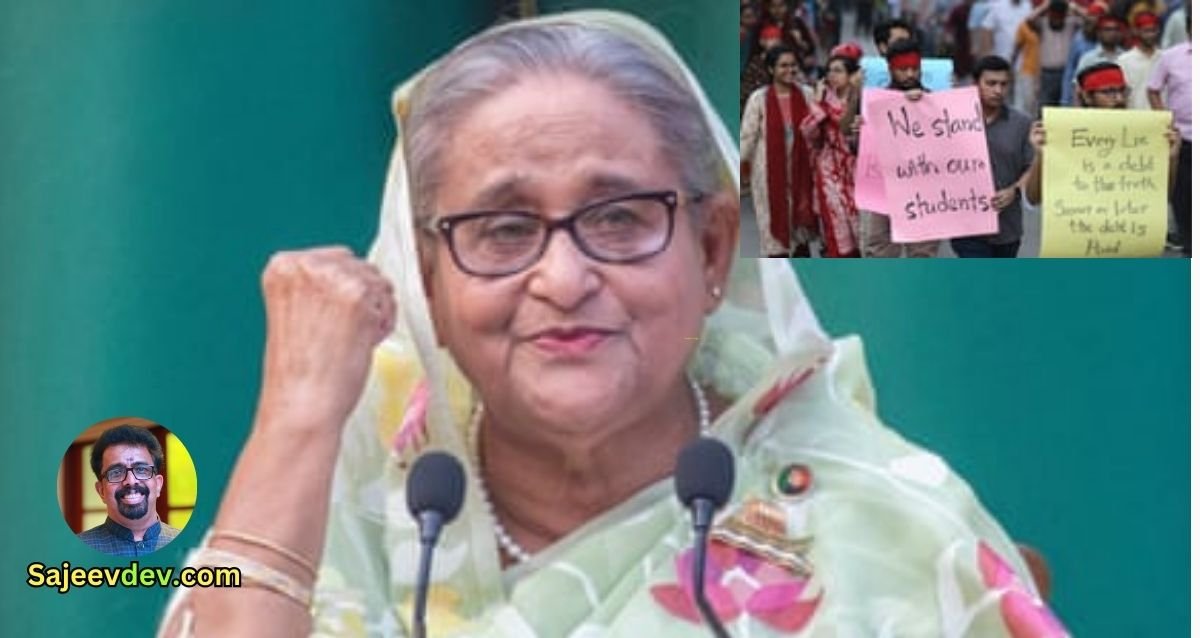In a sudden and dramatic turn of events, the 76-year-old Prime Minister of Bangladesh has resigned and left the country after weeks of intense student-led protests that were met with violence. The army chief has confirmed the departure, marking a significant shift in the political landscape of Bangladesh. This article delves into the underlying issues that led to the crisis, the events leading up to the Prime Minister’s resignation, and potential solutions to address the ongoing turmoil.
Background and Underlying Issues
The resignation of the Prime Minister comes against a backdrop of growing discontent among the population, particularly the youth. The primary issues that have fueled the protests include
1. Corruption and Governance: Widespread allegations of corruption within the government have eroded public trust. The perception of rampant graft and misuse of power has been a significant grievance.
2. Economic Challenges: Despite some economic growth, many Bangladeshis face high unemployment, inflation, and inadequate public services. Economic inequality has exacerbated frustrations, particularly among the younger population who see limited opportunities for advancement.
3. Human Rights Concerns: The government’s response to dissent has been marked by allegations of human rights abuses, including arbitrary arrests, disappearances, and suppression of free speech. This has created an environment of fear and oppression.
4. Education System: The student protests were initially sparked by issues within the education system, including high fees, inadequate facilities, and poor job prospects for graduates. These issues reflect broader systemic problems that the government has failed to address.
The Protests and Government Response
The protests began as peaceful demonstrations by students demanding reforms in the education sector. However, the government’s heavy-handed response, including the use of violence, tear gas, and mass arrests, escalated the situation. The images of brutal crackdowns circulating on social media galvanized public support for the students and intensified the protests.
As the protests grew, they began to encompass broader demands for governmental accountability, transparency, and democratic reforms. The government’s inability to engage constructively with the protesters and address their concerns led to a loss of legitimacy and credibility.
The Prime Minister’s Resignation
Faced with mounting pressure and an untenable situation, the Prime Minister decided to resign and leave the country. This move, while shocking, reflects the depth of the crisis and the government’s failure to manage it effectively. The army chief’s confirmation of the Prime Minister’s departure indicates a significant shift in the power dynamics within Bangladesh.
Potential Solutions
Addressing the crisis in Bangladesh requires a multifaceted approach that tackles both the immediate and underlying issues:
1. Political Reforms: Immediate steps must be taken to restore democratic processes and institutions. This includes ensuring free and fair elections, protecting freedom of speech, and safeguarding human rights.
2. Anti-Corruption Measures: Establishing robust anti-corruption mechanisms is essential to restore public trust. This could involve creating independent bodies to investigate and prosecute corruption cases.
3. Economic Policies: Implementing policies that promote inclusive economic growth and address unemployment is crucial. This includes investing in job creation programs, supporting small and medium-sized enterprises, and improving public services.
4. Education Reforms: Comprehensive reforms in the education sector are necessary to meet the demands of students and improve their prospects. This could involve increasing funding for education, reducing fees, improving infrastructure, and aligning curricula with job market needs.
5. Dialogue and Reconciliation: Establishing a platform for dialogue between the government, opposition parties, civil society, and protest groups is vital. Reconciliation efforts must be undertaken to heal the divisions within society and build a consensus on the way forward.
6. International Support: The international community can play a supportive role by providing diplomatic assistance, mediating negotiations, and offering technical and financial support for reforms.
The resignation of the Prime Minister and the preceding student-led protests have highlighted deep-seated issues within Bangladesh that require urgent attention. Addressing these challenges through political, economic, and social reforms is essential to restoring stability and ensuring a brighter future for the country. The path forward will be difficult, but with collective effort and a commitment to change, Bangladesh can overcome this crisis and emerge stronger.









